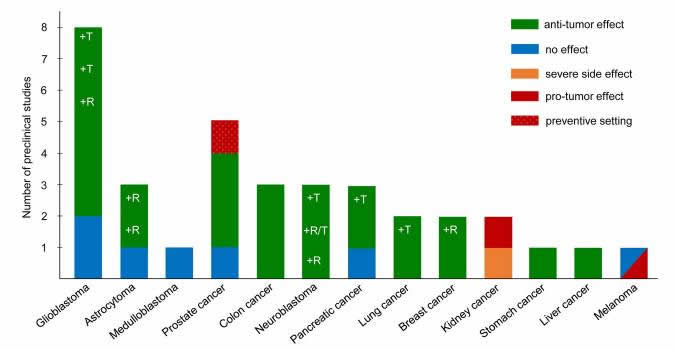As every writer / editor / publisher probably recognizes, close to time of publication I start to exhibit the tell-tale signs of procrastination, delaying tackling the task at hand. The reasons? Possibly a multi-dimensional complex of factors masking the swirling around my mind of so many health-related issues / topics / controversies affecting me, my friends and family, as well as research findings broadcast on conventional and social media. Not to mention the increasingly bad-tempered and vituperative political and social mood internationally: UK Brexit, EU intransigence, Trump’s US trade sanctions against his allies, Middle East / Israel / Palestinian / Burmese / China / North Korean conflicts (sorry if I’ve left out others).
There have appeared in the media recently - June 2018 - seeming ‘breakthrough’ approaches to treating breast cancer, including the results of the 21-gene breast cancer assay trial which “suggest that the 21-gene assay may identify up to 85% of women with early breast cancer who can be spared adjuvant chemotherapy”.[1,2] Additionally the personalized immune therapy which infused about 90 billion cancer-killing cells into a breast cancer patient given three months to live. “The life of a woman with terminal breast cancer has been saved by a pioneering new therapy, say US researchers. It involved pumping 90 billion cancer-killing immune cells into her body… She had tennis ball-sized tumours in her liver and secondary cancers throughout her body.”[3] Certainly the holy grail of immunotherapy cancer treatment; however, to prevent the over excitement of the medical research community and the world of cancer sufferers was the news that the use of a separate immune activating drug treatment to treat adult T-cell leukemia-lymphoma actually worsened patients’ disease.[4]
Following the recent very sad death of Dame Tessa Jowell from aggressive glioblastoma, it is very encouraging to report encouraging clinical results from University Hospital for Pediatrics of the Paracelsus Medical University, 5020, Salzburg, Austria, investigating the efficacy of Ketogenic Diet (KD) as an adjuvant therapy for neuroblastoma and other types of cancer.[5] “The strongest evidence (> 3 studies) for a tumor-suppressing effect has been reported for glioblastoma, whereas little or no benefit was found for two other brain tumors (astrocytoma and medulloblastoma). Good evidence (2 - 3 studies) is available for prostate, colon, pancreatic and lung cancer [1]; neuroblastoma also falls into this category (Figure 1). Some of those studies report a tumor-suppressing effect of KD alone and/or in combination with classic therapy and/or caloric restriction. One study on prostate cancer applied the KD in a preventive, instead of a therapeutic, study setting. Only limited evidence (1 study) supports the anti-tumor effect of an unrestricted KD on breast, stomach, and liver cancer.”[5]

Figure 1. Preclinical evidence indicating the effect of a KD on tumor growth and progression. The bar chart shows the number of preclinical studies, which investigated the effect of a KD on different types of cancer. Colors of the bars represent the result of each study as indicated in the color key. Studies on KD and cancer were collected by a literature search covering through the end of 2017. R indicates studies with a calorie-restricted KD; T indicates use of a KD as an adjuvant therapy to classic therapy.
Other research from Pittsburgh USA showed that “Ketogenic diets in human lymphomas appears well tolerated and can improve symptoms, quality of life, and possibly limit tumors. Ketogenic diets may reverse the weight loss seen in terminal cancer patients with cachexia.”[6] And research from Tokyo Metropolitan Health and, Tokyo, Japan with patients with stage IV recurrent colon cancer concluded that “Chemotherapy for one year in combination with a ketogenic diet presents higher response and disease control rates than chemotherapy alone. Therefore, the ketogenic diet may be a supportive therapy for patients with stage IV colon cancer”. [7]
PH Online Issue 247 presents a wide range of authoritative and clinically interesting editorial features spanning the entire spectrum of integrated approaches to healthcare – from mind-spiritual subjects - The Moral Glue of our Conscience, Magical Piers The Lovers Journey Part III, Tips from a Life Coach, clinical reports - How a Homeopath Selects a Remedy, ME/Chronic Fatigue Syndrome, HRT and Dementia, Adaptogens, Stress and Brain Ischemia, Vitamin E, Benefits of Mackerel, Weight Loss, and Bodywork features - Binman to Alexander Technique, Sciatica, Yoga, Orthodontics Tips, Straight Teeth, Research Updates and Letters to the Editor
I sincerely invite you to relish this worthy, fascinating and enlightening PH Online Issue 247.
References
1. Adjuvant Chemotherapy Guided by a 21-Gene Expression Assay in Breast Cancer
https://www.nejm.org/doi/10.1056/NEJMoa1804710
2. For Some Breast Cancer Patients, The Chemo Decision Just Got Easier
https://www.npr.org/sections/health-shots/2018/06/03/616298863/for-some-breast-cancer-patients-the-chemo-decision-just-got-easier
3. 'Remarkable' therapy beats terminal breast cancer
https://www.bbc.co.uk/news/amp/health-44338276?__twitter_impression=true
4. A Promising Cancer Treatment Made Patients Worse, Not Better
https://mobile.nytimes.com/2018/06/05/health/immunotherapy-lymphoma.html?smid=tw-nythealth&smtyp=cur
5. Ketogenic diet in cancer therapy
https://www.ncbi.nlm.nih.gov/pmc/articles/PMC5842847/
6. Modified ketogenic diet in lymphoma: A case series in the Veteran Affairs Pittsburgh Healthcare System.
http://ascopubs.org/doi/abs/10.1200/JCO.2018.36.15_suppl.e24222#.WxaVHy2ISm4.twitter
7. Clinical effects of one year of chemotherapy with a modified medium-chain triglyceride ketogenic diet on the recurrence of stage IV colon cancer
http://ascopubs.org/doi/abs/10.1200/JCO.2018.36.15_suppl.e15709